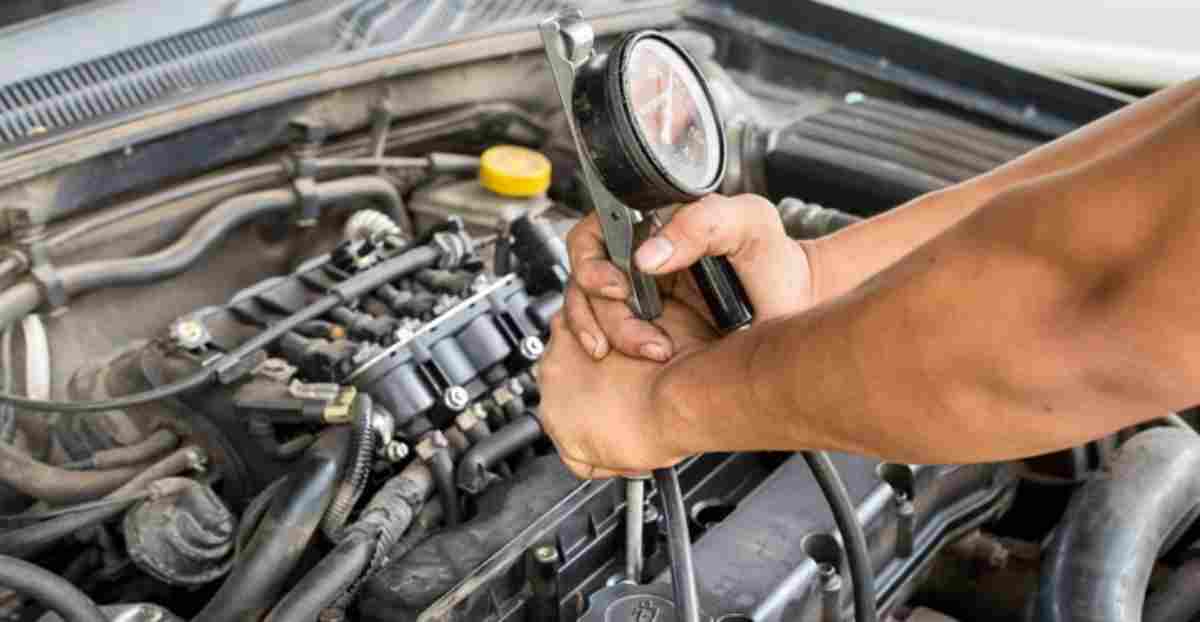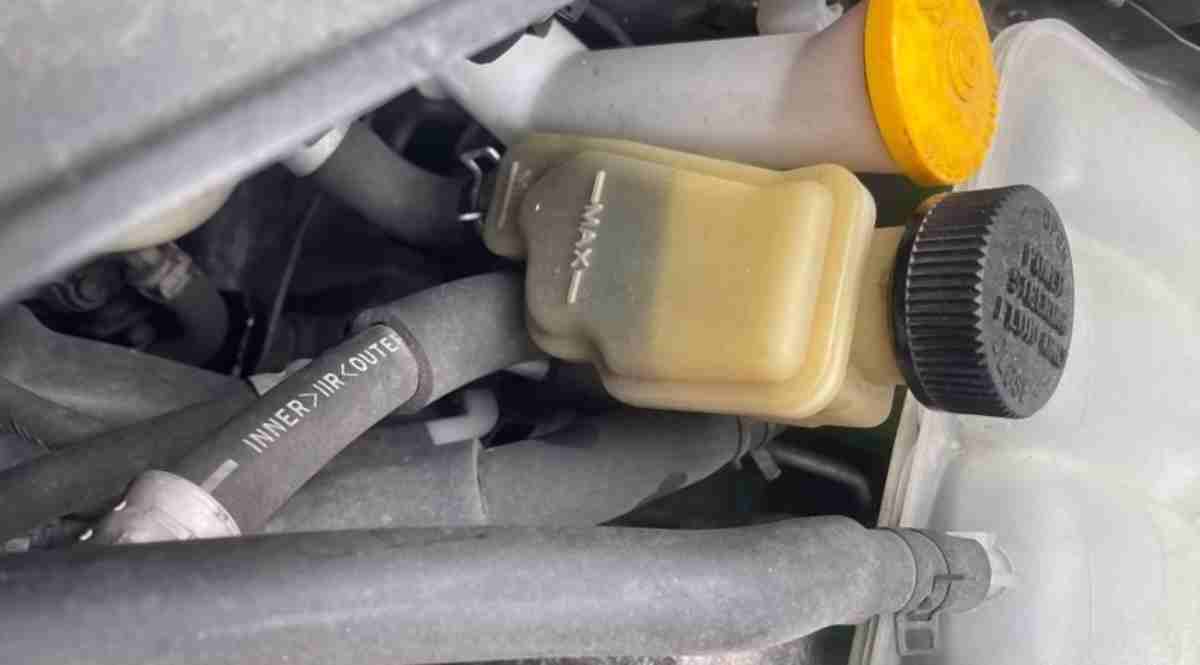This publication explains why your car shuts off when stopped or slowing down. Of course, we also include the possible fixes for the problem to get you to continue your trip.
This experience is typical when the engine of your engine just shuts down whenever you slow down or stop your car.
It may not occur frequently but the few times it happens can be annoying and worrisome.
In some cases, you do not even get indicators like the check engine light to show that something is wrong.

Reasons car shuts off when stopped or slowing down
This section explores the possible reasons your vehicle will keep shutting off when you stop or slow down as well as how to fix the problem:
-
Faulty idle air control valve
Your idle air control valve could be failing, causing the car to shut down as you try to stop it or slow down.
The idle air control valve in a car monitors air intake being mixed with fuel before it is injected into the engine.
The engine RPM will increase when you accelerate and when you release the gas, it returns slowly to the normal idling speed. The idle air control valve monitors all these.
Read also: O2 sensor code won’t stop unless…
Most vehicles can tell when the engine RPM is below the normal range of 750-800 RPM.
How to fix
This is a faulty and sometimes dirty idle air control valve problem that needs a replacement. Contact a mechanic to fix this complex problem so that your vehicle no longer shuts off when you slow down or stop the car.
-
Failing transmission
If your car has automatic transmission, the torque converter replaces the manual clutch and also transmits power.
A broken torque converter or low fluid level in the transmission will affect the converter, so your car is not able to maintain power at low speeds. Thus, when you slow down or stop, the engine shuts off.
This could also be a problem caused by a faulty TCS (torque converter solenoid).
If your torque converter is damaged or faulty due to other reasons or the fluid level in the transmission is low, the power will be inconsistent at low speeds.
How to fix
The solution is to replace the damaged torque converter immediately.
A damaged torque converter will cause friction, overheating, and faster transmission fluid degradation.
Ensure to also replace the contaminated transmission fluid to solve the problem.
-
Worn spark plugs
Spark plugs in a car create the spark and ignite the air-fuel mixture inside the combustion chamber to start the engine.
If your car is unable to create the spark, the spark plugs are aged and worn out, and also disrupt the flow of current.
Symptoms
The signs that your spark plugs are faulty include poor fuel economy, slow acceleration, misfiring, and a surging engine.
How to fix
The solution is to buy good quality spark plugs for your car. High-quality spark plugs do not wear out too quickly.
You would find silver, copper, single platinum, double platinum, and iridium spark plugs in the market. Although copper spark plugs are cheap, they do not last long enough. Make sure to buy the spark plugs made with the other materials for longevity and reliability.
-
Defective fuel injectors, low fuel pressure, or damaged fuel pump
The fuel pump in a car transfers fuel from the tank to the engine. If failing, the fuel pressure becomes low, causing an inconsistent fuel stream to the engine.
This is not noticeable at high speeds. However, when you slow down or try to stop the car, a temporary pause in the fuel stream is enough to shut off the engine.
Fuel injectors spray a measured amount of fuel ignited by the spark plugs. If the fuel Injectors clog, this causes erratic spray, and in some cases, no spray at all.
Therefore, insufficient power is generated when you drive at low speeds or stop the car, killing the engine before you do.
Symptoms
If your faulty fuel injectors are faulty, you will experience engine misfires, inconsistent RPM needles, and poor fuel mileage. Sometimes, the car will not start at all.
Read also: vehicle gas leak symptoms
Moreover, you can tell that the fuel pump is damaged through other indicators helping you to narrow down the problem. These include whining noise from the fuel tank and trouble starting the car.
How to fix
Give the malfunctioning fuel injectors concentrated cleaning to unclog them. Usually, concentrated cleaners are mixed with water for the cleaning.
-
EGR Valve clogging or restriction
A clogged EGR valve will cause your car to stall, sputter, or idle erratically if it is stuck open or closed.
How to fix
A clogged EGR requires cleaning instead of a replacement. Carbon deposits can clog the EGR, so make sure to check them thoroughly.
Buy EGR valve cleaners and spray them onto the carbon build-up. Clean it using a pipe cleaning brush.
Read also: why you need thick jumper cables
Use a piece of cloth to wipe the surface. You can soak the valve in a cleaning solution for a few minutes if it is hard to clean.
-
Malfunctioning O2 sensor or mass flow sensor
Faulty O2 (oxygen sensor) or mass flow sensor determines the level of oxygen entering the fuel stream. It also gets the vehicle to adjust the air-to-fuel ratio.
Excessive or too little oxygen in the car will not provide optimal power. When you slow down or try to stop the car, it will shut off because this suboptimal power can no longer fuel the vehicle at low speeds.
How to fix
You will typically need the oxygen sensor codes chart to know what the problem is. Ensure to replace the oxygen sensor or oxygen if this is the cause of the problem. A mechanic is in the best position to fix this problem.
-
Wiring Problem
The ignition system of your vehicle produces the spark igniting the fuel-air mixture to start the engine.
An inconsistently firing ignition system can be the reason your car shuts off when stopped or slowing down since it causes the engine to stall.
Ignition wires or the spark plug wires are part of your car’s ignition system circuit. The connections need to be consistent, otherwise, the ignition system will not function properly.
How to fix
The solution is to inspect for and fix or replace loose, damaged, or corroded wires. The ignition wire is also part of these wires and is responsible for supplying the spark plug with voltage.
If you do not replace the damaged or fix the loose wire, the engine will lose voltage. Moreover, there will be insufficient power for creating the spark to ignite the fuel, causing the engine to die when you slow down or try to stop the car.
Contact a mechanic

Contact an experienced mechanic. You can hire a mobile mechanic who will visit your place of work or home to help determine the source and cause of your car shutting off when slowing down or stopping.
A detailed inspection report, including the scope and cost of the repairs, will be provided to you.
Usually, the mechanic will test drive the car to know if they can replicate the problem. They also listen to the engine at idle to detect misses, backfires, or other strange noises.
A scan tool is used to access the engine control unit or transmission control computer to collect information on stored codes.
After the test drive, overall engine performance, and the diagnosis, the mechanic can tell the source and cause of the car shutting off on its own when you slow down or try to park it.
Meanwhile, follow this guide to becoming a reliable mechanic with zero experience.
![Car Losing Oil but No Leak or Smoke [5 Reasons & Solution] Car Losing Oil but No Leak or Smoke [5 Reasons & Solution]](https://sanedriver.org/wp-content/uploads/2022/05/PicsArt_05-05-07.53.53.jpg)
![Brake Lights Not Working but Third Light is [Fixed] Brake Lights Not Working but Third Light is [Fixed]](https://sanedriver.org/wp-content/uploads/2022/07/PicsArt_07-04-12.18.14.jpg)

What a great post, Bernard!
Very complete and straightforward!
But, how about adding the cost of fixing this problem?
I believe many readers (and I 😁 ) are interested in finding out more about this aspect.
Howdy Bernard,
I had a suggestion for your blog post, so I tried to reach out to you, but the email contact was wrong.
Could I know your contact address so I can talk with u easier?